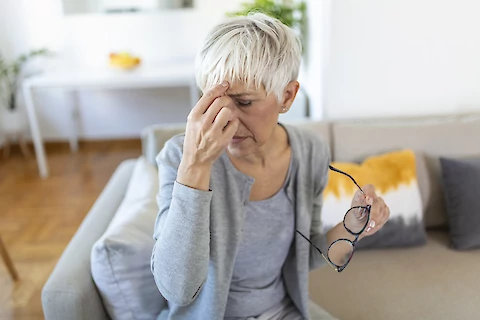
Glaucoma—it's a word that may send a shiver down the spine if you're aware of its implications. It's a serious eye condition that can lead to vision loss, and it’s particularly prevalent among older adults. Regular eye check-ups are essential in catching this condition early, especially if you're a senior.
Senior Helpers Central Houston aims to help you better understand glaucoma, its symptoms, and its risk factors.
Understanding Glaucoma
Glaucoma is an eye condition that damages the eye's optic nerve, which is crucial for good vision. Over time, the increased pressure in your eye, or intraocular pressure, can lead to gradual vision loss and even blindness.
Often described as the "sneaky thief of sight," glaucoma is particularly insidious because it develops slowly. It is quite common among senior citizens, though it can affect people of all ages.
Symptoms of Glaucoma
The tricky part about glaucoma is that early on, you may not notice anything wrong with your vision. Glaucoma often starts by affecting your peripheral vision, meaning you may not notice any changes until the disease has progressed.
As the disease advances, you might start to notice patchy blind spots in your peripheral or central vision, frequently in both eyes. Tunnel vision occurs during the advanced stages of the condition. Additionally, severe headaches, blurred vision, eye pain, redness, and nausea can occur if the intraocular pressure rapidly increases, a condition known as acute angle-closure glaucoma.
Risk Factors for Glaucoma
Understanding the risk factors associated with glaucoma is vital in its prevention and early detection. Older adults, typically over 60, are at a higher risk. If you have a family history of the condition, you could be more likely to develop it yourself.
Certain medical conditions, including diabetes, heart disease, and high blood pressure, can increase your risk. Furthermore, those with severe nearsightedness are often at a higher risk.
Importance of Regular Eye Check-ups
With regular eye exams, your healthcare provider can measure your intraocular pressure, evaluate your eye's drainage angle, examine your optic nerve for damage, and test your peripheral vision. Your healthcare provider can also offer tips to improve your eye health over time.
These steps can help detect the disease even before symptoms show up. By catching it early, treatment can begin at a stage where it will have a significant effect on slowing or even preventing further vision loss. Seniors, especially those with a genetic predisposition or other risk factors, should prioritize regular eye check-ups.
Get Support and Encouragement From Senior Helpers
Glaucoma, the silent vision stealer, doesn't have to dictate your golden years. Knowing the symptoms and risk factors can increase your chances of early detection and successful treatment, preserving your precious sight. Regular eye check-ups should be a key component of your healthcare regimen.
If you're a senior living in Houston, South Houston, or Harris County, Senior Helpers Central Houston is here to help you navigate your eye health concerns. Contact us today to learn more about our senior care services!